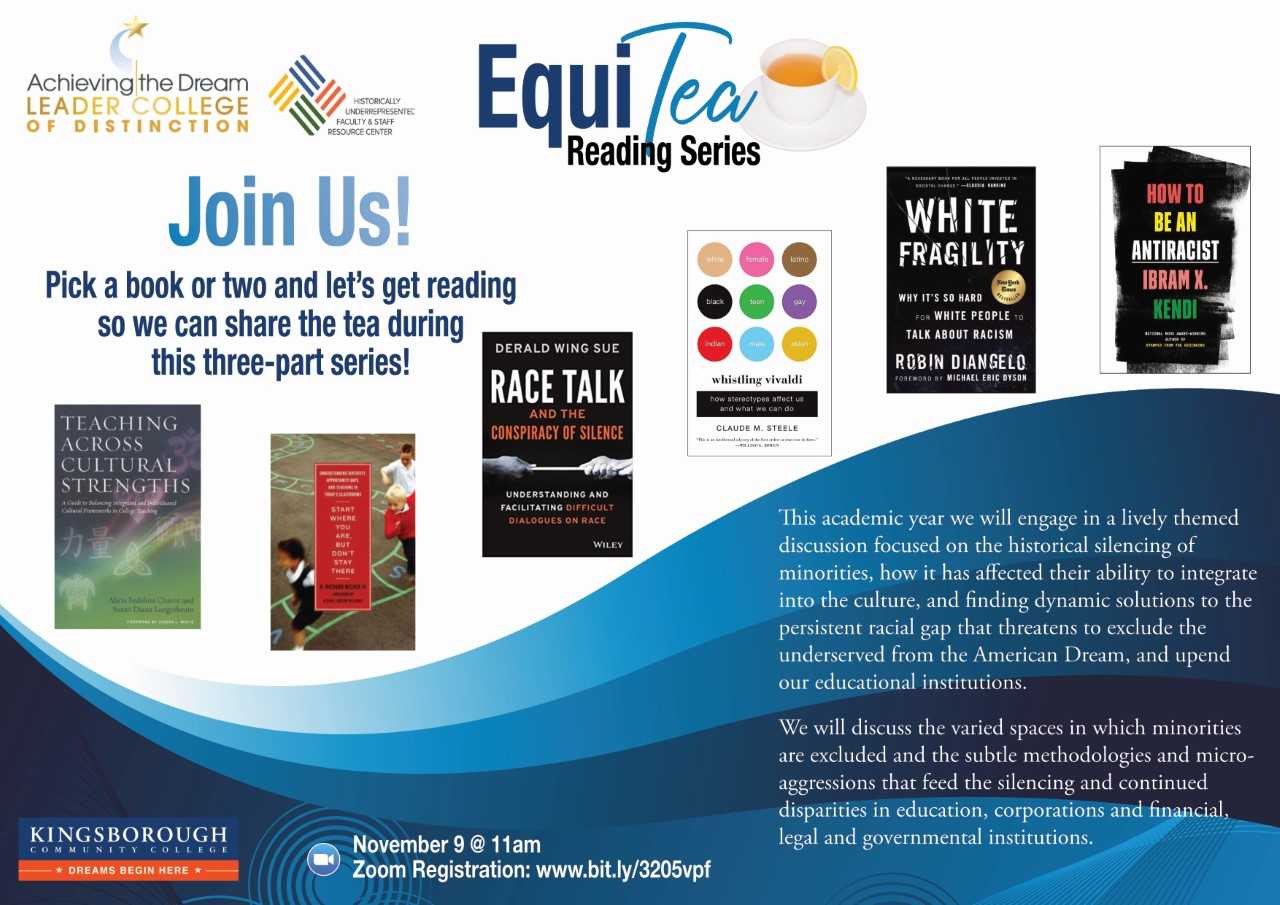ATD
RESOURCES AND LINKS
ACHIVING THE DREAM KINGSBOROUGH'S EQUITY SERIES

EquiTea Reading Series
Join Us! Pick a book or two and let’s get reading so we can share the tea during this three-part series!
This academic year we will engage in a lively themed discussion focused on the historical silencing of minorities, how it has affected their ability to integrate into the culture, and finding dynamic solutions to the persistent racial gap that threatens to exclude the underserved from the American Dream, and upend our educational institutions.
We will discuss the varied spaces in which minorities are excluded and the subtle methodologies and micro-aggressions that feed the silencing and continued disparities in education, corporations and financial, legal and governmental institutions.
KCC’s Achieving the Dream committees invite you to join in our summer 2020 EquiTea
Series reading kick-off. Choose a book (or two) of your liking and join our theme-based
discussions throughout fall 2020.
White Fragility by Robin Diangelo Directly addresses why it is so hard for people to discuss race. By identifying emotions
such as anger, fear, and guilt constructively, the author tries to help people have
safer and more productive cross- racial dialogue. It provides context for understanding
racism as the system to which most of us were socialized.
How to be an Anti-Racist by Ibram Kendi The author discusses his own journey as a Black man growing up to Black liberal parents
in the 60’s and 70’s, how he came to identify his own racism, and his theory that
we often take one of three positions—the assimilationist, the segrationists, and the
anti-racist, these result in dueling consciousnesses. He talks about power, biology,
ethnicity, class, space, and gender.
Whistling Vivaldi by Claude Steele A psychologist from Stanford, Steele helps us better understand how the effect of
self-perceived stereotypes interfere with our learning. The book addresses many kinds
of stereotypes— those against women, gays, ethnicities, ages, and different socioeconomic
classes.
Teaching Across Cultural Strengths by Alicia Chavez and Susan Longerbeam This is a pedagogical guide about how to balance two different teaching/learning
styles—individuated/primarily white and integrated/primarily multicultural. Most of
their research was done in the southwest. It has many self-reflection activities,
including explorations of silence in the classroom.
Start Where you are But Don’t Stay there by Richard Milner It is a textbook for use in teacher training at the K-12 level about how to better
address the needs of multi-cultural learners. He focuses on opportunity gaps. His
framework moves from color-blindness, to cultural conflicts, to the myth of meritocracy,
to deficit mind-sets and low expectations, to the use of social contexts. Readers
can consider exploring how this framework can be applied to post-secondary learning
experiences.

